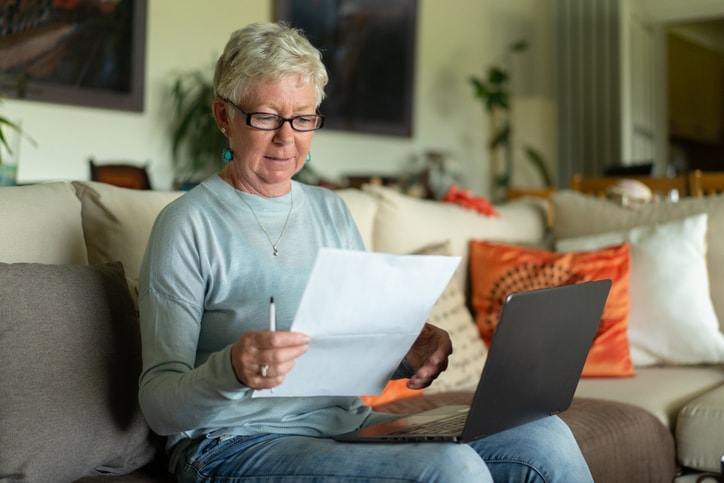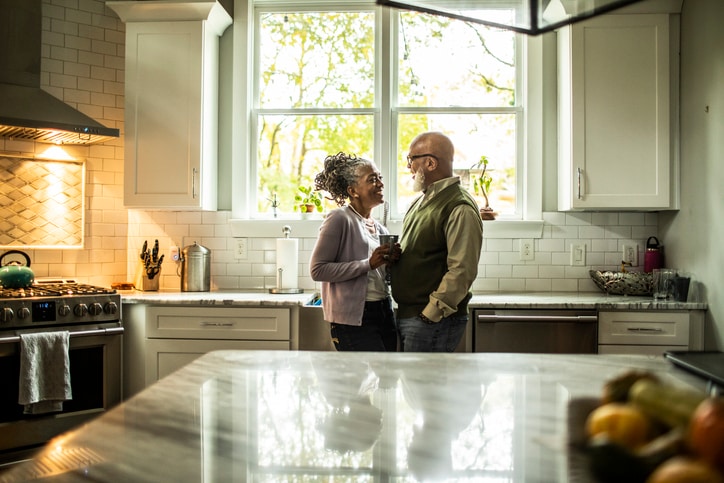By Liz O’Donnell
In my father’s final months of his life, I visited him every day. He was living in a skilled nursing facility and was confined to a wheelchair – no longer steady on his feet. It was springtime, and I would wheel him outside every day and we would sit on the front patio of the nursing home surrounded by daffodils. My father enjoyed sitting in his garden. My only challenge was figuring out which garden he thought we were in each day – the one at his childhood home, or the home where he raised me, or our family’s cottage; he had planted daffodils at all of them over the years. My father had dementia and was cognitively impaired at that point. He would talk and I would listen, searching for clues in order to join the conversation in a way that made sense for him.
Dementia is a brain disease that causes loss of cognitive functioning and a decline in mental ability that interferes with daily life. Alzheimer’s is the most common cause of dementia and accounts for the majority of dementia cases, but there are other forms of the disease including Lewy bodies, and frontotemporal dementia. It is an increasingly common illness; someone in the United States develops the disease every 65 seconds. And, it can be overwhelmingly challenging – for both patient and caregiver.
Caring for someone with dementia is not easy. In fact, compared with caregivers of people without dementia, twice as many caregivers of those with dementia indicate substantial emotional, financial and physical difficulties. Caring for my father as his dementia progressed, was one of the most difficult challenges I have ever faced. And yet I was fairly lucky. Once I got over the fear and heartbreak of placing my father in a nursing home, I realized I had found a good one because the nursing staff their coached me and guided me on how best to support my father. Not all caregivers are that lucky. They struggle without support, education, or relief.
If you are caring for someone with dementia, there are some critical steps you can take to make the experience less stressful. Here are 4 Game-Changers for Dementia Caregivers.
- Educate yourself. Despite the prevalence of dementia cases in the United States, the disease is woefully misunderstood by many – including those in the medical industry. As a result, there is little education and few supports for both people living with dementia, and the people who care for them. If you are a dementia caregiver, learn what you can about the disease. Luckily, there are some helpful online resources for dementia caregivers that share practical tools and tips from how to handle repetitive questions to how to deal with aggressive behavior. The Alzheimer’s Association has excellent resources on the different stages of dementia, long-term care planning and living arrangements. Another great resource for learning about the disease is Positive Approach to Care, a company that provides dementia training. Founder Teepa Snow has a series of videos on YouTube that address common challenges like getting someone with dementia to bathe or eat. Unfortunately, dementia caregivers can’t always rely on doctors and senior housing staff to guide them – but they can find useful, reliable help online.
- Build a team. Dementia caregivers often report facing significant emotional, financial and physical difficulties. Just as the person you are caring for needs support, so too do you. Don’t try to go it alone. Having an ally can make caregiving more manageable. In my case, I built strong relationships with the nurses who cared for my father. I asked them questions, turned to them for advice, and was forthcoming with them about what my wishes and expectations were for my father’s care. In return they worked with me as part of my father’s care team, and I never felt alone in caring for him. Figure out what kind of ally you want and where you can find that person. It could be a medical professional or paid caregiver with whom you share a mutual respect. It could be a friend or sibling who agrees to be your sounding board and to help you when you are feeling overwhelmed. It could be someone you meet in a local support group. No matter who it is, find someone with whom you can share even a small part of the care.
- Practice self-compassion. If ever there is a time to care for yourself, it’s when you are caring for someone with dementia. Dementia caregivers typically provide care for a longer duration than caregivers of people with other types of conditions per the Center for Disease Control and Prevention. That means we need to maintain our strength and stamina. Knowing that the demands of caregiving might make long walks or visits to the gym challenging to fit in, you can still care for yourself by acknowledging the important role you are playing in someone else’s life and forgiving yourself if and when you struggle along the way.
- Let go of how you think things should be. Sitting in the garden of the nursing home with my father, I wanted him to know that I was his daughter, come to visit him another day. But more often than not he didn’t know that. He didn’t even know who I was. Somedays he thought I was his sister. Other days he thought I was the woman who ran the nursing home. Sometimes he would ask me if he had a family and I would tell him, “Yes, and I am your daughter.” He was always surprised by that. But the one thing he always knew, the one thing we both knew, was that we enjoyed each other’s company. If I had focused on how things were supposed to be – my father should know his daughter – I might have missed out on enjoying our final days together. When you are caring for someone with dementia, do your best to find joy and connection whenever and however it appears. As dementia changes a patient’s brain; it becomes more important for you to keep an open mind and heart.
Liz O’Donnell is the founder of Working Daughter and the author of Working Daughter: A Guide To Caring For your Aging Parents While Making A Living. For caregiving support, information and resources contact a Senior Care Advisor at Care.com as part of your employer benefits. We are master’s-level social workers specializing in adult and senior care. Call us today at (855) 781-1303 x3 or email questions to careplanning@care.com





